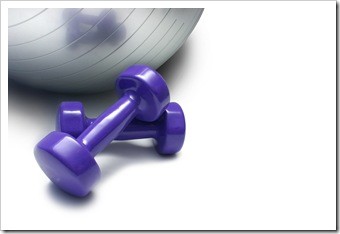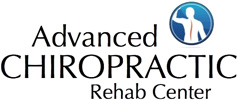 You finally have committed. The gym bag is packed and your gym shoes are tied tight. As you enter the door you are still running through the workout routine you did years ago that got you into great shape and are ready to start again. This year, I promise. You look across the packed gym of all the others who are going to achieve their goals this year. They all seem to be working very hard but is what they are doing really beneficial and would it improve my bodies physical makeover better?
You finally have committed. The gym bag is packed and your gym shoes are tied tight. As you enter the door you are still running through the workout routine you did years ago that got you into great shape and are ready to start again. This year, I promise. You look across the packed gym of all the others who are going to achieve their goals this year. They all seem to be working very hard but is what they are doing really beneficial and would it improve my bodies physical makeover better?
A Simple Truth About Exercise
Unfortunately many of us are misguided by magazines or well intentioned videos to what the most beneficial exercises would be for our bodies. The amount of people in the gym engaging in fundamentally dangerous exercises which have no real life functional benefit whatsoever is actually astounding.
A functional benefit from exercise refers to the conditioning of the muscles and structures used in your activities of daily living. This form of training encompasses whole body movements such as squats and lunges which place a demand on the bodies core stabilizing structures to ensure balance, stability and coordination. To operate as an effective “kinetic chain”, our joints must be stabilized as forces are transmitted through them. Functional training tasks should, therefore, emphasize multi-joint movements where muscles work in coordinated task groups. They should also be dynamic enough to activate the reflexes that enhance the system’s stability and efficiency. Finally, they should require skillful solutions, similar to the motor problems posed by many of todays daily activities.
Core Concepts
Though commonly used to refer to the abs and lower-back muscles collectively (considered the epicenter of the body ), the term “core” actually applies to several muscles throughout the upper and lower body. The transverse abdominis, rectus abdominis (your six-pack muscle), internal obliques, multifidus, spinal erectors, lats, glutes, and traps can all be considered core muscles.
These muscle groups all work together, often simultaneously, to stabilize and support the spine. Since the spinal cord is the main avenue for sending messages to the muscles throughout your body, the safer your body senses that it is, the more comfortable it feels sending those messages out and the more clearly they are received.
Building a strong core is the first step toward making maximal gains in strength and power and performing any kind of skilled athletic movement. Strong supporting muscles around the spine also reduce lower-back pain, as well as the risk for lower-back injury. Let us not forget, since the core encompasses all the abdominal muscles that make up that aesthetic six-pack look, it’s the foundation of a ripped midsection.
Ready to Help!
Our expert team is here and ready to help you not only with achieving your health goals successfully but to help you maintain those results. We recommend that before you begin any new exercise regiment that you have a check-up and take advantage of our expertise. If you suffer from a previous injury let our team also help your body repair properly to restore and revitalize function on your path to achieving your new year’s body transformation.
For Your Health,
Dr. Geoffrey Bossio and Dr. Daniella D'Alessio
